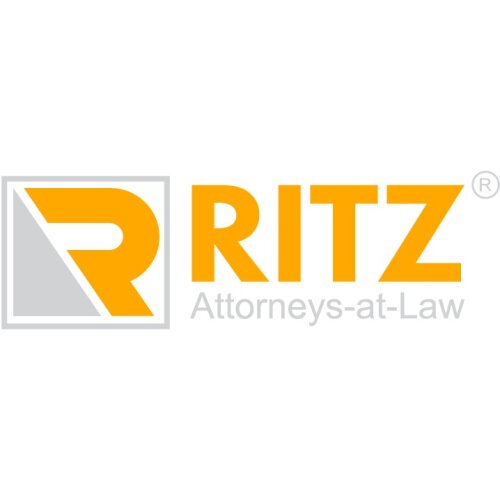Best Hiring & Firing Lawyers in Malawi
Share your needs with us, get contacted by law firms.
Free. Takes 2 min.
Or refine your search by selecting a city:
List of the best lawyers in Malawi
About Hiring & Firing Law in Malawi
In Malawi, employment law, particularly concerning hiring and firing, is predominantly governed by the Employment Act of 2000. This legislation provides a comprehensive framework to address and manage employer-employee relationships, ensuring that the rights of both parties are protected. The law stipulates various processes and protocols that must be followed to promote fair labor practices, emphasizing non-discrimination and fair treatment throughout the employment life cycle, from recruitment to termination.
Why You May Need a Lawyer
Engaging a lawyer specialized in employment law can be crucial in various scenarios related to hiring and firing in Malawi. Common situations where legal assistance might be necessary include disagreements over employment contracts, wrongful termination claims, disputes regarding severance pay, and breaches of employment law standards. Moreover, if an employee feels they have been unfairly discriminated against or harassed, legal counsel can help navigate these complex situations. Employers may also seek legal advice to ensure compliance with employment laws and to handle terminations appropriately to minimize the risk of legal repercussions.
Local Laws Overview
Understanding the key aspects of Malawian employment law is essential for both employers and employees. Key elements include:
- Employment Contracts: Contracts should be clear, detailing the terms and conditions of employment, including duties, salary, leave entitlements, and termination procedures.
- Non-Discrimination: The law prohibits discrimination in hiring practices, requiring equal treatment regardless of race, gender, religion, or disability.
- Termination Procedures: Employers must provide valid reasons for termination and adhere to due process, including notice periods and severance obligations.
- Rights to Fair Treatment: Employees are entitled to fair treatment in all aspects of employment, including working conditions and payment of wages.
- Dispute Resolution: The Industrial Relations Court addresses disputes between employers and employees, offering a legal avenue for redress.
Frequently Asked Questions
What constitutes unfair dismissal in Malawi?
Unfair dismissal occurs when an employee is terminated without a valid reason or without following proper procedures as stipulated in the employment contract and the Employment Act of 2000.
How much notice is required for termination?
The required notice period typically depends on the terms set forth in the employment contract but must comply with the minimums outlined in the Employment Act of 2000. Common notice periods range from one week to one month, depending on the employment tenure.
What should be included in an employment contract?
An employment contract should contain key terms such as job responsibilities, salary, working hours, leave entitlements, and the procedures for termination of employment.
Can employers conduct background checks during hiring?
Yes, employers can conduct background checks, but they must ensure these checks comply with privacy laws and should not be discriminatory.
Are employment disputes common in Malawi?
Employment disputes can occur, often involving issues like unfair dismissal, breaches of contract, and discrimination claims. The legal system provides avenues to address these disputes fairly.
What are the typical remedies for unfair dismissal?
Remedies can include reinstatement of the employee, compensation for lost wages, or other damages as deemed appropriate by the Industrial Relations Court.
Do employers have obligations regarding safe working conditions?
Yes, employers are legally obligated to provide safe and healthy working conditions under the Occupational Safety, Health, and Welfare Act.
Is severance pay mandatory in Malawi?
Severance pay is mandatory under certain conditions, primarily related to redundancy and retrenchment, as outlined by the law.
How can an employee report unlawful practices at work?
Employees may report unlawful practices to the Ministry of Labor or take their grievances to the Industrial Relations Court.
What legal protections are in place for contract workers?
Contract workers are protected under the same basic employment laws as other employees, including rights to fair treatment, safe working conditions, and adequate rest periods.
Additional Resources
For further information and assistance on hiring and firing regulations in Malawi, consider reaching out to the following resources:
- Ministry of Labor, Youth, Sports and Manpower Development: Offers guidance on labor laws and regulations.
- Malawi Law Society: Provides access to legal professionals specializing in employment law.
- Industrial Relations Court: A platform for resolving employment-related disputes.
- Human Rights Consultative Committee (HRCC): An NGO committed to advocating for fair labor practices and rights.
Next Steps
If you believe you need legal assistance regarding hiring and firing issues in Malawi, start by gathering all relevant documents related to your employment. Consider consulting a lawyer who specializes in employment law to review your case. You can reach out to the Malawi Law Society for a list of qualified attorneys. Additionally, ensure you understand your rights and obligations under the current employment law framework to protect your interests effectively.
Lawzana helps you find the best lawyers and law firms in Malawi through a curated and pre-screened list of qualified legal professionals. Our platform offers rankings and detailed profiles of attorneys and law firms, allowing you to compare based on practice areas, including Hiring & Firing, experience, and client feedback.
Each profile includes a description of the firm's areas of practice, client reviews, team members and partners, year of establishment, spoken languages, office locations, contact information, social media presence, and any published articles or resources. Most firms on our platform speak English and are experienced in both local and international legal matters.
Get a quote from top-rated law firms in Malawi — quickly, securely, and without unnecessary hassle.
Disclaimer:
The information provided on this page is for general informational purposes only and does not constitute legal advice. While we strive to ensure the accuracy and relevance of the content, legal information may change over time, and interpretations of the law can vary. You should always consult with a qualified legal professional for advice specific to your situation.
We disclaim all liability for actions taken or not taken based on the content of this page. If you believe any information is incorrect or outdated, please contact us, and we will review and update it where appropriate.
Browse hiring & firing law firms by city in Malawi
Refine your search by selecting a city.












